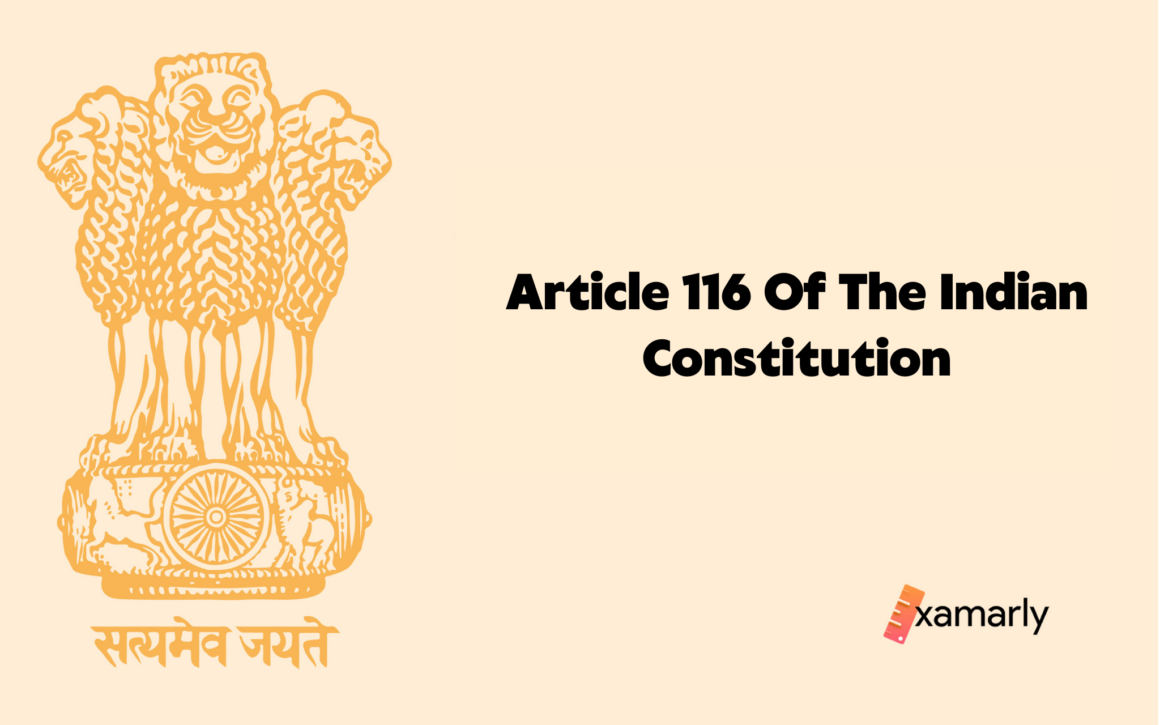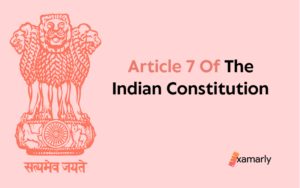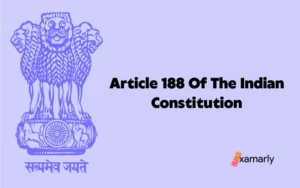Overview
Article 116 of the Indian Constitution talks about such requirement of a sum that could be required before the commencement of a financial year. It also talks about those expenses that are unforeseen and can require a sum.
Let us dig deep into Article 116 of the Indian Constitution to have a good grasp on the concepts mentioned in the aforementioned Article.
We will understand more about Article 116 of the Indian Constitution by analyzing each clause and sub-clause present in it.
Article 116 of the Indian Constitution – In Detail
The clause in this Article has been further divided into three sub-clauses. These three sub-clauses are the conditions defined. Such conditions in which Article 116 of the Indian Constitution comes into effect.
Clause 1 – As it is & Explained
“(1) Notwithstanding anything in the foregoing provisions of this Chapter, the House of the People shall have power
(a) to make any grant in advance in respect of the estimated expenditure for a part of any financial year pending the completion of the procedure prescribed in article 113 for the voting of such grant and the passing of the law in accordance with the provisions of article 114 in relation to that expenditure;
(b) to make a grant for meeting an unexpected demand upon there sources of India when on account of the magnitude or the indefinite character of the service the demand cannot be stand with the details ordinarily given in an annual financial statement;
(c) to make an exceptional grant which forms no part of the current service of any financial year; and Parliament shall have power to authorise by law the withdrawal of moneys from the Consolidated Fund of India for the purposes for which the said grants are made”
The first clause of Article 116 of the Indian Constitution says that despite any provisions that are present in this chapter of the Constitution, the House of People which is the Lok Sabha will have the power to authorize grants in some specifically defined scenarios.
These scenarios are well-defined in the sub-clauses mentioned below.
(a) If suppose there is a requirement of the sum by any ministry before the commencement of a new financial year and the annual financial statement is pending to come into effect as per the protocols defined in Articles 113 and 114 of the Indian Constitution. Then, any ministry can make a grant in advance to meet its monetary requirements.
Let us understand this sub-clause with an example. If suppose, a ministry has come up with the requirement of sum in the month of February, but as per the provisions mentioned in Article 113 and Article 114 of the Indian Constitution, the annual financial statement will be presented in April and the release of amount can take the time up to May.
Then in such scenarios, the requirement of the money in February cannot wait till May but a grand in advance can be presented in advance to meet the monetary requirement of February.
(b) If suppose there arises a situation in which a service that has to be paid for comes out with an unforeseen magnitude of expenses or some indefinite part of the service requires that sum of money which has not been described in the details mentioned in an annual statement.
(c) In a scenario where an exceptional grant has to be made for a service that is currently not a part of any financial year, the Parliament shall have the power to grant the withdrawal of money for the desired purpose.
Clause 2 – As it is & Explained
“(2) The provisions of articles 113 and 114 shall have effect in relation to the making of any grant under clause ( 1 ) and to any law to be made under that clause as they have effect in relation to the making of a grant with regard to any expenditure mentioned in the annual financial statement and the law to be made for the authorisation of appropriation of moneys out of the Consolidated Fund of India to meet such expenditure”
The second clause of Article 116 of the Indian Constitution says that whatever grant has to be made under clause 1 should be made in accordance with the provisions mentioned in Article 113 and Article 114 of the Indian Constitution.
This also applies to any law that had to be made regarding making a grant with respect to the expenses mentioned in the annual financial statement.
Summing Up
We can conclude from this article that Article 116 of the Indian Constitution is an extension of Articles 112, 113, 114, and 115 of the Indian Constitution.
This Article is important as it talks about those exceptions that can demand a sum of money during a pending fiscal year.
FAQs
Who is authorized for the contingency funds?
The Finance Secretary (Department of Economic Affairs) on behalf of the President of India holds the Contingency Fund Of India.
How many demands for grants are there?
Each ministry or department will have just one demand for grants presented on its behalf. However, multiple demands are provided for consideration when it comes to huge ministries and departments.
What are the 4 types of grants for Nonprofits?
Competitive Grants. Competitive grants are those for which a nonprofit submits a proposal that gets evaluated by a team of reviewers.
Continuation Grants.
Pass-through Grants.
Formula Grants
Is demand for grants a money bill?
In compliance with Article 113 of the Constitution, estimates of expenditures made from the Consolidated Fund are presented to the Lok Sabha in the form of a Demand for Grants.






